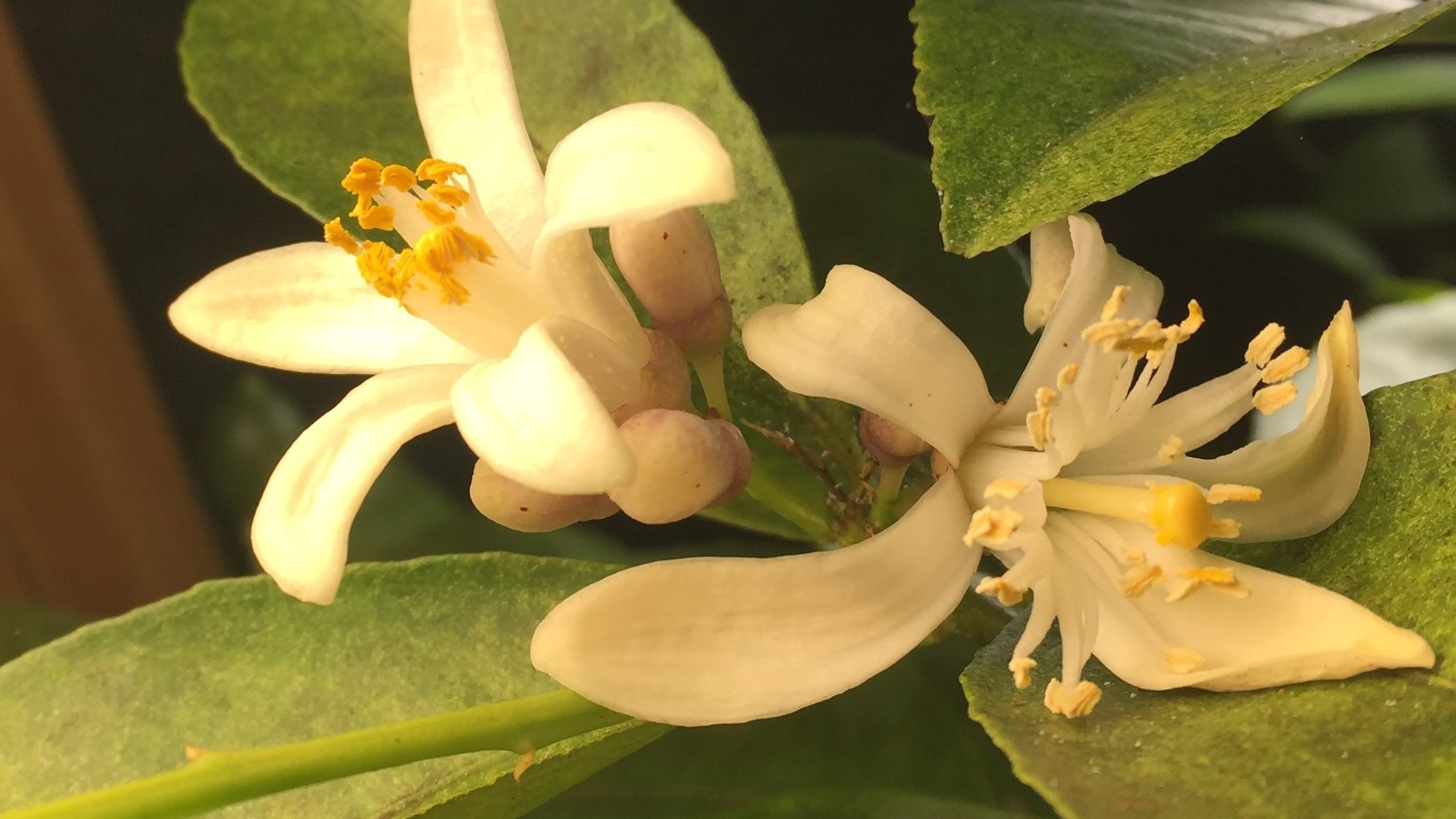Indoor Meyer lemon blooms normally in January

Q: My Meyer lemon has about ten blooms starting to form. Is January the normal time?Rob Walter, Canton
A: It is behaving normally. Mine has bloomed indoors in January as well as outdoors in May depending on the weather conditions. When a lemon tree is indoors it's a good idea to assist with pollination. I have directions at bit.ly/GAlemonpol.
Q: I am new to Georgia and am interested in planting a few fruit trees in my back yard. I'd like rare but hardy ones. Any suggestions?Eddie Reize, Dacula
A: "Rare" and "hardy" may not be possible. If a fruit tree is rare, it's usually hard to grow here. If it is hardy, it's usually easy to grow here, but it's not rare. For the best advice, I suggest you talk directly to nurseries that specialize in fruit plants. I have a list of local and online fruit nurseries at bit.ly/fruitsources. Nearby, the Atlanta Local Food Initiative is holding a fruit tree sale soon. See www.fruittreesale.com for details.
Q: What could be the cottony white fuzzy stuff on my houseplant stems? How do I get rid of it?Nancy Willis, email
A: It's very likely your plants are infested with mealy bugs. They are kin to scale insects, and both suck plant sap. Mealybugs protect themselves under a covering of white fluffy wax. On a day when you are filled with patience, touch each one with the tip of a cotton swab that has been soaked in rubbing alcohol. This will dissolve the wax and kill the insect beneath.
Q: What would happen if I topped my 20-foot-tall pine trees?Julie Bomar-Jones, email
A: If you cut off the top of any tree, eventually a small nearby limb will begin veering upward toward the sun to make a new trunk. This might take several years to be noticeable, so if you are comfortable with the beheaded pine look, have at it.
Q: What are your thoughts on organic pesticides, and fertilizers? Do they work as well as non-organic?Seth Patterson, Cherokee County
A: Organic pesticides can be as good as, or better than, conventional pesticides. It all depends on the pest being controlled. I have never seen an organic herbicide that would kill English ivy. But for killing small weed seedlings, organic soap and citrus products work fine. Young insects are pretty easy to control organically. But when they mature, control is problematic. Personally, I have both types of pesticide in my shed. I make sure I have identified the pest correctly, then make my decision based on its maturity or the size of the infestation. Organic fertilizers can also be superior to “chemical” fertilizers. I like the fact that organic fertilizers release their nutrients slowly, in tune with the needs of the plant.
Listen to Walter Reeves Saturday mornings on 95.5 WSB. Visit his website, www.walterreeves.com, follow him on Twitter @walterreeves, on Pinterest, or join his Facebook Fan Page at bit.ly/georgiagardener for more garden tips.

